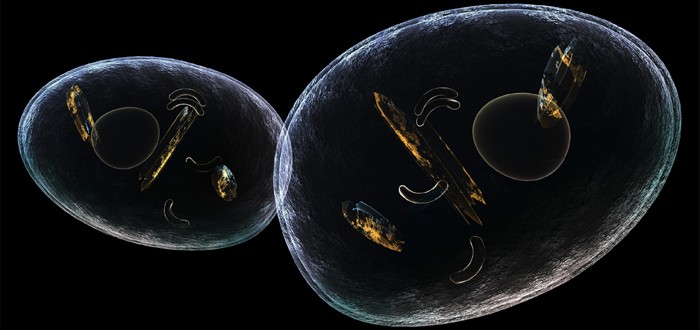At some point in the future, the mesothelioma therapy your doctor orders for you could have as its molecular target a mitochondrial enzyme known as pyruvate carboxylase.
So say researchers from the Markey Cancer Center at the University of Kentucky in Lexington writing in a recent issue of the Journal of Clinical Investigation.
Here’s the basic idea. Because mesothelioma and lung cancer cells tend to grow like crazy, they need more energy to sustain themselves than do healthy normal cells.
So cancer cells — mesothelioma included — rely heavily on pyruvate carboxylase to help them generate that required extra energy.
The researchers believe that reducing the amount of pyruvate carboxylase available to the cancer cells will cause their growth to slow or even stop for lack of energy.
The researchers theorized that pyruvate carboxylase could be a cancer-fighting weapon once they took a closer look at the functioning of the Krebs cycle.
Monitoring Mesothelioma Growth
The Krebs cycle provides cells with two things they need, construction materials and energy. In the course of supplying those materials and energy, the Krebs cycle loses carbon.
Pyruvate carboxylase and the enzyme glutaminase funnel new carbon into the Krebs cycle, so that materials and energy can continue to flow and things can keep humming along.
To test their theory about pyruvate carboxylase, the researchers — with a little help from their friends at the Center for Environmental and Systems Biochemistry in Britain — obtained metabolic data from more than 120 early-stage lung cancer patients.
The researchers started off by measuring the activity of pyruvate carboxylase and glutaminase. Then they infused the patients with stable isotopes bearing a glucose tag.
The researchers explained that they opted to use stable isotopes (rather than radioactive isotopes) because these don’t decay and are found naturally at low levels inside the body.
Adding glucose to the isotopes provided a means to monitor metabolic functions inside cells and determine whether changes to those functions could be attributed to cancer.
Next, the isotope-infused patients underwent surgery to have the cancer removed.
When the cancer was out, the researchers looked at the harvested specimens under the microscope and — with the help of other instruments — noticed that the pyruvate carboxylase had been selectively activated.
They interpreted this to mean that expression of the enzyme pyruvate carboxylase may be important to cancer development.
Slowing Mesothelioma Growth Is the Goal
The researchers then reduced the amount of pyruvate carboxylase in the cancer cells. The approach they took involved using genetic tools to reprogram the cells’ metabolism.
Subsequent observation of those pyruvate carboxylase-deprived tumors revealed decreased cancer cell growth.
Also noticed was a decreased ability of the cancer cells to form colonies — at least to form them in lab dishes designed to grow bacteria and other cells.
Mice were also involved in this research, to see if tumors inside a host body could be made to stop growing. The researchers reported that curbing pyruvate carboxylase caused tumor growth to slow.
The researchers said this study helped them gain invaluable insights into the metabolic reprogramming of cancerous tissues in humans.
“Ultimately, figuring out how to target pyruvate carboxylase may help researchers develop new, more effective therapeutic strategies,” said Markey Cancer Center clinician Prof. Teresa Fan.

